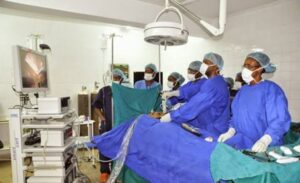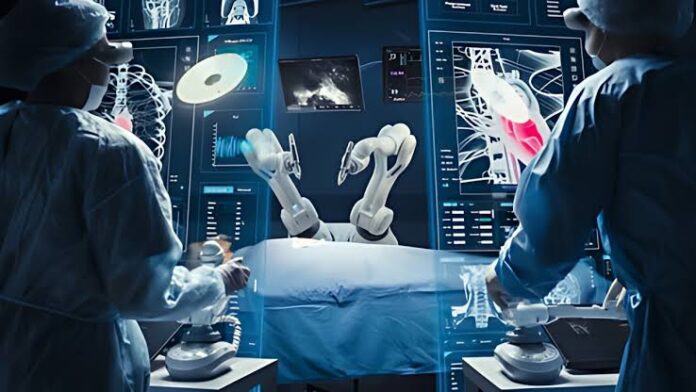In a landmark moment for healthcare in Tanzania, the Muhimbili Orthopaedic Institute (MOI) has introduced robotic brain surgery, setting a new benchmark in the country’s medical capabilities. This development not only marks a first for Tanzania but also positions MOI as a rising center for advanced neurological care in East Africa.
Speaking at the opening of the 11th International Conference of Neurosurgeons and Specialist Nurses in Dar es Salaam on Monday, MOI Director, Ambassador Dr. Mpoki Ulisubisya, shared the exciting news. He announced that the institute is now equipped with the Brain Lab Neuro-navigation system — a cutting-edge device designed to assist surgeons in navigating the complexities of brain surgery with heightened accuracy.
The technology, which was generously donated by Weill Cornell University in New York, enables surgeons to pinpoint problem areas within the brain during procedures with impressive precision. It’s a game-changer in improving patient outcomes and reducing the risks typically associated with delicate neurosurgical operations.
“This is not just about a new machine,” Dr. Mpoki said. “It’s about opening a new chapter in how we treat diseases of the brain, spine, and nervous system. For us at MOI, it’s a dream long in the making, and today, it’s becoming reality.”
The milestone is the fruit of over 16 years of collaboration between MOI and Weill Cornell University — a partnership that has not only delivered equipment but also strengthened local expertise through consistent training and support.
Dr. Laurent Lemeri Mchome, Director of Neurosurgery Services at MOI, emphasized how the partnership has created opportunities for Tanzanian doctors to undergo specialized training in the United States. These doctors, now back in Tanzania, are putting their skills to use by performing high-level surgeries that were once thought impossible within the country’s borders.
Also, read: Niger’s Military Leader Sworn in as Transitional President, Dissolves Political Parties
Until now, MOI had been managing 95% of Tanzania’s brain, spine, and nerve cases. The arrival of the neuro-navigation system is expected to significantly reduce the number of patients referred abroad for the remaining complex procedures.
For Dr. Mpoki, this isn’t just a victory for MOI. It’s a win for Tanzania’s entire healthcare system. “Thanks to the unwavering support of Prof. Roger Hartl and the Weill Cornell team, we are not just building a facility. We are building trust, expertise, and hope for thousands of patients.”
Prof. Hartl, a world-renowned neurosurgeon from Weill Cornell, was honored during the ceremony and expressed gratitude for the recognition. He reaffirmed his commitment to supporting Tanzania’s journey toward accessible and world-class neurosurgical care.
“We’re inspired by the dedication and ambition shown by the MOI team,” Prof. Hartl said. “Our mission remains the same — to continue working side by side with our Tanzanian colleagues to train, equip, and empower them in every way possible.”
Dr. Hamisi Shabani, who coordinated the conference, also highlighted the annual Global Neurosurgery Course, another product of the MOI-Weill Cornell alliance. The course has provided hands-on training to Tanzanian doctors and nurses, exposing them to the latest surgical innovations and global best practices.
As MOI ushers in this new era of robotic brain surgery, it does so with an eye firmly fixed on the future — a future where Tanzanians no longer need to leave their borders to receive the very best in neurological care.

